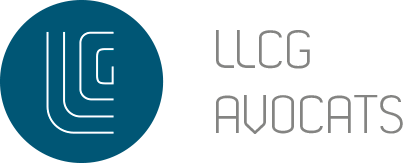These rankings are a benchmark for the business world. Over many years, Stéphanie Legrand, Olivier Legrand and Michèle Lesage-Catel have been ranked by their peers and others as having outstanding skills in the fields of intellectual property, patented inventions, trademarks, designs, models and copyright.
The most recent ranking confirms their outstanding status, their excellent reputation and the acknowledged quality of their practice, which is of the highest repute, not only in the traditional fields of intellectual and industrial property, but in those of publishing, retail distribution, marketing and advertising. Note the special acknowledgement of the law firm’s skills in the fashion and luxury goods industries.
LEGRAND LESAGE-CATEL law firm rankings by Classement Décideurs in 2016:
- Patent litigation: outstanding practitioner
- Trademarks, designs and models: outstanding practitioner
LEGRAND LESAGE-CATEL law firm rankings by Classement Décideurs in 2015:
- Law of the Art Market: world class
- Luxury and Fashion: reputed practitioner
- Advertising and Marketing: reputed practitioner
- Publishing: highly acknowledged
- Distribution: reputed practitioner
Noteworthy legal decisions
Some examples from 2015/2016:
- A judgement of the European General Court
On 25 September 2015, Olivier Legrand, defending a maker of electrically powered vehicles sold to a target public exercising a high level attention (Class 12 of the Nice Agreement on International Classification of Goods and Services) successfully upheld the dismissal the applicant’s claim for registration of a competing trade mark, on grounds of its visual and phonetic similarity to the existing mark (T-684/13).
- Patent Case Law
On two occasions, Olivier Legrand argued the inadmissibility of an action claiming non-infringement of a patented invention, successfully adopting a line infrequently pursued, the details of which are worthwhile noting:
- On 12 February 2015, the Tribunal de Grande Instance de Paris (Paris District Court), ruled the Plaintiff’s failure to comply with the processes required by the phase of amicable resolution under Article L. 615-9 of the Code of Intellectual Property (RG No. 2013/12379).
- On 22 October 2015, the same Court on grounds of absence of legitimate interest, declared inadmissible a lawsuit on grounds that the Court was deflected from its true purpose, this decision being followed by a further ruling that obligations of precise conduct had not been followed by the Plaintiff in the phase of seeking amicable settlement, either in form or substance. The Plaintiff was heavily sanctioned (RG No. 2015/10834).
On 16 February 2016, the Commercial Court of the Cour de Cassation (Court of Final Appeal) confirmed the decision of the Court of Appeal of Paris, which on 3 July 2014 declared incompetent the Tribunal de Grande Instance (Paris District Court), in whose hands the Tribunal de Commerce (Commercial Court) had placed a dispute restricted to an issue of unfair competition, no matter that the Defendant had sought to link it to a patent dispute (appeal No. 14-24.295).
- Trademark Case Law
Stéphanie Legrand, in regard to products in Classes 7 and 8, successfully challenged the ruling that annulled the OPTIMA trademark. The Cour d’Appel de Paris on 8 December 2015 dismissed the notion that its registration had been fraudulent and ruled against the Defendant on grounds of the latter’s infringement of a recognized trademark when using the signs OPTIMA followed by EPTIMA and OPTIMUM referring to products of the same nature in the agricultural machine tools field (RG No. 2014/19100).
Olivier Legrand successfully pleaded before the Cour d’Appel de Paris, on 12 May 2015, that it uphold an earlier ruling voiding a brand name made up of decorative elements combined with a three-dimensional representation of the indented sole of an army or work-boot, declared to be non-distinctive as a trademark, given that it was a generic decorative element and as such not available for use as a commercial sign of distinctive character (RG No. 2014/00702).
LEGRAND LESAGE-CATEL also attracted attention by its involvement in a dispute laid before the Tribunal de Grande Instance of Nanterre (Nanterre District Court), involving the LAGUIOLE name and figurative trademarks that had, at the time, just given rise to extensive debate at national and European levels (ruling of 1 October 2015, RG No. 2012/07051).
- Design and Model Case Law
Stéphanie LEGRAND successfully submitted to the Cour d’Appel de Paris that it rule in favour of actions claiming infringement, thereby upholding the rights of a Franco-German Group to its international and EU models in the tableware field (CA Paris, 26 June 2015, RG No. 2014/10180).
Along the same lines, note also a favourable ruling of 12 February 2016 by the Court of Appeal of Bordeaux not only on grounds of infringement of well-known models, but of unfair and parasitical competition (RG No. 2014/03141).
- Customs Disputes:
LEGRAND LESAGE-CATEL law firm advised in a Customs dispute and made submissions to the Mediator of the French Ministries of the Economy and Finance, as a result of which an agreement was reached to reduce the penalty by 98.75%, and for Customs to retract criminal proceedings.
On completion by the examining judge of a lengthy investigatory procedure, Stéphanie Legrand, representing a Perfumer, won a ruling and heavy criminal sanctions against members of a network using concordance tables to infringe the trade marks of highly reputed perfume brands (RG n° 2016/290).
- Copyright Case Law in the Art Market:
Points of law to beware
Beware! Government orders No. 2014-1280 and No. 2014-1281 set the rule whereby failure by an organ of the administration to respond to an application within regulatory deadlines was deemed its acceptance. These orders were overturned by decision of the Conseil d’Etat on 30 December 2015 regarding applications to patent inventions and a number of applications for registration in the Register of patents, trademarks, designs and models.
Consult a Specialist!
Beware! The introduction into French contract law of new rules under Government Order No. 2016-131 of 10 February 2016 may make it possible to renegotiate, revise or even by court order to overturn a contract whose performance has become excessively burdensome (concept of lack of foreknowledge, Article 1195 of the Civil Code).
For example, when competitive conditions are unexpectedly exacerbated, uncertain and fluctuating, circumstances may arise that affect licences for patents, trade names, designs and models, in which case the new rule could apply.
Your specialist lawyer is a valuable source of advice on possible courses of action.
Beware! A moral obligation may arise under that same Government Order, equivalent under certain circumstances to the force of law. Article 1100 of the French Civil Code recognizes, as an independent source of an obligation to perform, the duty of conscience or the promise to execute. Thus the willingness to confirm a contract or engagement, no matter that the contract or engagement is void of effect, endows it with the force of an obligation, whereas under the law on public order, new terms and definitions must be taken into consideration (Articles 1182, 1179).
Hence, whenever actions are performed, their internal consistency must be taken into consideration. You may need to take specialist legal advice on how to avoid contradicting yourself! French law has taken up the English-speaking world’s concept of estoppels.
Beware! Procedural innovations such as “interrogatory action” may be introduced under the above-mentioned Government Order, for the purpose of countering possible contract voidance pleas.
Sound advice from experienced Counsel is the best way to place a commercial relationship on a safe legal footing.
Beware! After next October, no further reliance can be placed on the celebrated Article 1382 of the French Civil Code in which so many court rulings have been grounded, especially in the field of unfair competition. No matter that according to the original and particularly concise and explicit wording of the Civil Code (whose initial drafters certainly knew their job!), any person causing harm to another is under an obligation to make remedy, this celebrated enactment now becomes Article 1240.
Specialist Counsel will ensure that an action is grounded in the relevant statutory and other enactments, so that any writ served or injunction sought is valid in the eyes of the law.
Game-changing developments affecting intellectual property law and regulations are a central concern of LEGRAND LESAGE-CATEL law firm.
Year-end 2015 saw the adoption of the “trademark package”:
– EU Directive 2015/2436
– EU Regulation 2015/2424;
EU member states have three years to enact the relevant transposition legislation.
The European Union Trade Mark (EUTM) replaced the EU Trade Mark (CTM) with effect from 23 March 2016.
The Regulation redefines the scope of protection available to proprietors of trade marks and the remedies available. Among others, Customs authorities have additional rights to impound counterfeit goods in transit.
The Regulation removes the requirement for graphical representation, allowing recognition of signs that, in the eyes of the competent authorities and public, determine the purpose of the trade mark by means of clear and precise representations.
Thus audibly recognizable trademarks on media such as electronic files, or trade marks contained in holograms and presenting as moving images in videos, including non-traditional trade marks based on smell and taste, may henceforward be registered.
This opens wide new vistas of creativity. Emerging trends must be monitored and explored with attention.
The protection of trade marks may be extended beyond their literal meanings, when so specified and subject to re-registration before 24 September 2016, if registered before 22 June 2012.
The scope of reform extends beyond the fiscal field to trademark renewal dates and fees, as well as to grounds for refusal. Certain other deadlines are also affected.
The Regulation redefines the content of the monopoly granted to rights holders. Subject to conditions and new Customs procedures, counterfeit goods in transit may be identified and impounded.
The European Union Trade Mark or EUTM does more than merely replace the former CTM or EU Trade Mark, but substantially remoulds it.
The role of specialist Counsel, as a provider of detailed insight and access to the most relevant advice, is more than ever critical to those seeking to adapt to this fast changing and increasingly complex environment.
In the field of Patent Law the “Unitary Patent and Unified Patent Court Package” is at last back on track …
The unitary patent, set up under EU Regulation 1257/2012, is a patent of uniform effect in the Territory of all Member States having ratified the Unified Patent Court Agreement of 12 February 2013.
The unitary patent will be granted by the European Patent Office under the European patent procedure. Claims to patent rights are identical and of identical effect throughout the Territory covered.
The UPC will have sole competency in regard to rulings on the validity and infringements of patents with unitary effect. Old-style European patents will remain in force for a transitional period of 7 years during which actions for voidance and on grounds of infringement may still be raised before national jurisdictions. It will also be possible for applicants for or holders of a European patent, prior to the end of the transitional period, to give notice of opt-out, whereby the competency of national courts may prevail throughout the lifetime of the patents, although opt-in remains possible at any time.
The strategy, challenges, issues and consequences of such choices, depending on the type of company and business field will naturally require expert advice.
The Lower Unified Patent Court will be endowed with a Central Division headquartered in Paris working through two outposts in London and Munich, to which the caseload from the various branches of industry will be allocated, whereas the Court of Appeal will have its seat in Luxembourg.
Procedural rules have been finalized.
LEGRAND LESAGE-CATEL specialist lawyers are closely monitoring current work on the Unitary Patent package and Unified Patent Court.
These long awaited innovative provisions should make it possible to better approximate the outcomes of adjudications under case law, and to promulgate rulings enforceable across the whole of the Territory, bringing down national barriers preventing the enforcement of uniform legal sanctions and remedies
Our specialist lawyers are ready to provide further advice and assistance to their clients in this field.
But this was the situation before Brexit! The referendum dealt a completely new hand, and old rules will no longer apply … “Watch this space”…!
- Rankings by Classement Décideurs 2015 and 2016 - 28 June 2016


